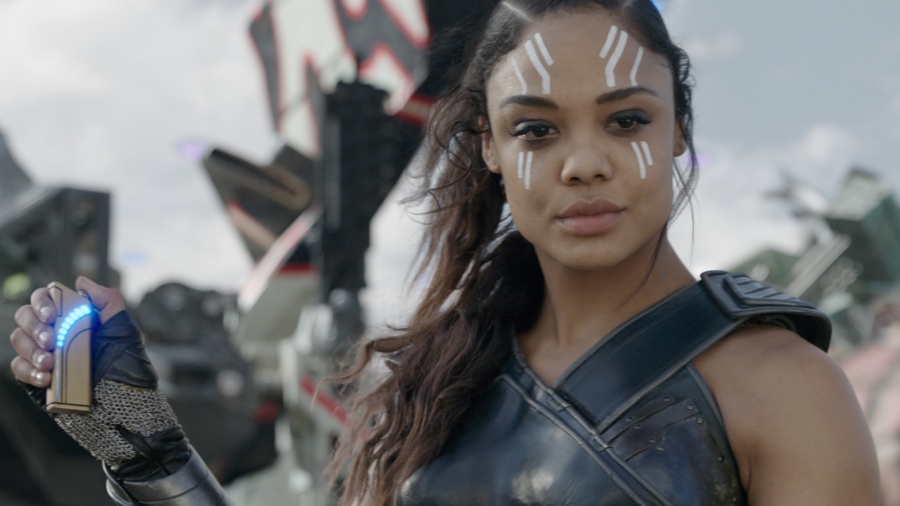Thor: Love And Thunder Is Cutting LGBTQ Content
According to Tessa Thompson, the LGBTQ content of Thor: Love and Thunder will not be what fans might have hoped.
This article is more than 2 years old

Thor: Love and Thunder is just a week away and fans are ready for the next installment of the Marvel Cinematic Universe. After the surprise success of Thor: Ragnarok in 2017 and Taika Waititi’s humorful, game-changing direction, the new movie has a lot to live up to. In particular, fans have hoped that this next installment in the saga of the thunder god would pay more attention to Tessa Thompson’s character Valkyrie and expand on the many references to her bisexuality that Marvel has made essentially only off-screen. But according to Tessa Thompsons herself, Thor: Love and Thunder does not have room to explore that.
In an interview with Yahoo, Tessa Thompson revealed that while she still firmly stood by the character being bisexual and that she was playing Valkyrie with that in mind, Thor: Love and Thunder did not “have a lot of room for storyline.” She also said that “we talked about it a lot, it was [a] big topic of conversation” in regards to Valkyrie’s sexuality, but the fact that there is no on-screen result of that implicitly means it was not considered an important enough facet of the character to be portrayed in the movie. It is questionable that a movie that involves the primary title character, the title group of characters from another series of films, a brand-new villain played by Christian Bale, and presumably a whole new pantheon of gods led by Russell Crowe’s Zeus cannot possibly find room for a character to have an on-screen love interest, but that is what it is. Thor: Love and Thunder is going to be a pretty busy movie, it seems.
To be fair, Tessa Thompson does make the good point that Thor: Love and Thunder does not have to depict Valkyrie with a romantic interest for her to be bisexual. As she puts it, a person is not defined by their romantic or sexual interests, and whether or not Valkyrie finds love with someone of any gender or orientation, she is still a queer character. That said, representation in media is an enormously controversial and discussed topic. In recent years, there has been a consistent push (and public outcry and subsequent backlash and backlash to the backlash) for people of color, LGBTQ individuals, and other historically less-represented characters to be present in film and television. However, that does bring up the question of how characters must then be represented and whether that potentially makes it seem like the sexuality of a character is their defining feature. Apparently, Thor: Love and Thunder will only be implicitly contributing to this ongoing debate.
The release of Thor: Love and Thunder also comes at a time when Disney (the parent company of Marvel Studios) is coming under immense pressure to both represent LGBTQ issues and also not acknowledge them. The recent Pixar (also owned by Disney) release Lightyear, which featured a brief same-sex kiss, became a brief topic of social controversy, with some people feeling that it was inappropriate to present the idea of loving, same-sex relationships in a movie targeted to children and some feeling like it was a minimal, lip-service effort. Doubtless, Thor: Love and Thunder will have some controversies attached to it, but Valkyrie’s sexuality might actually not be one of them this time.











